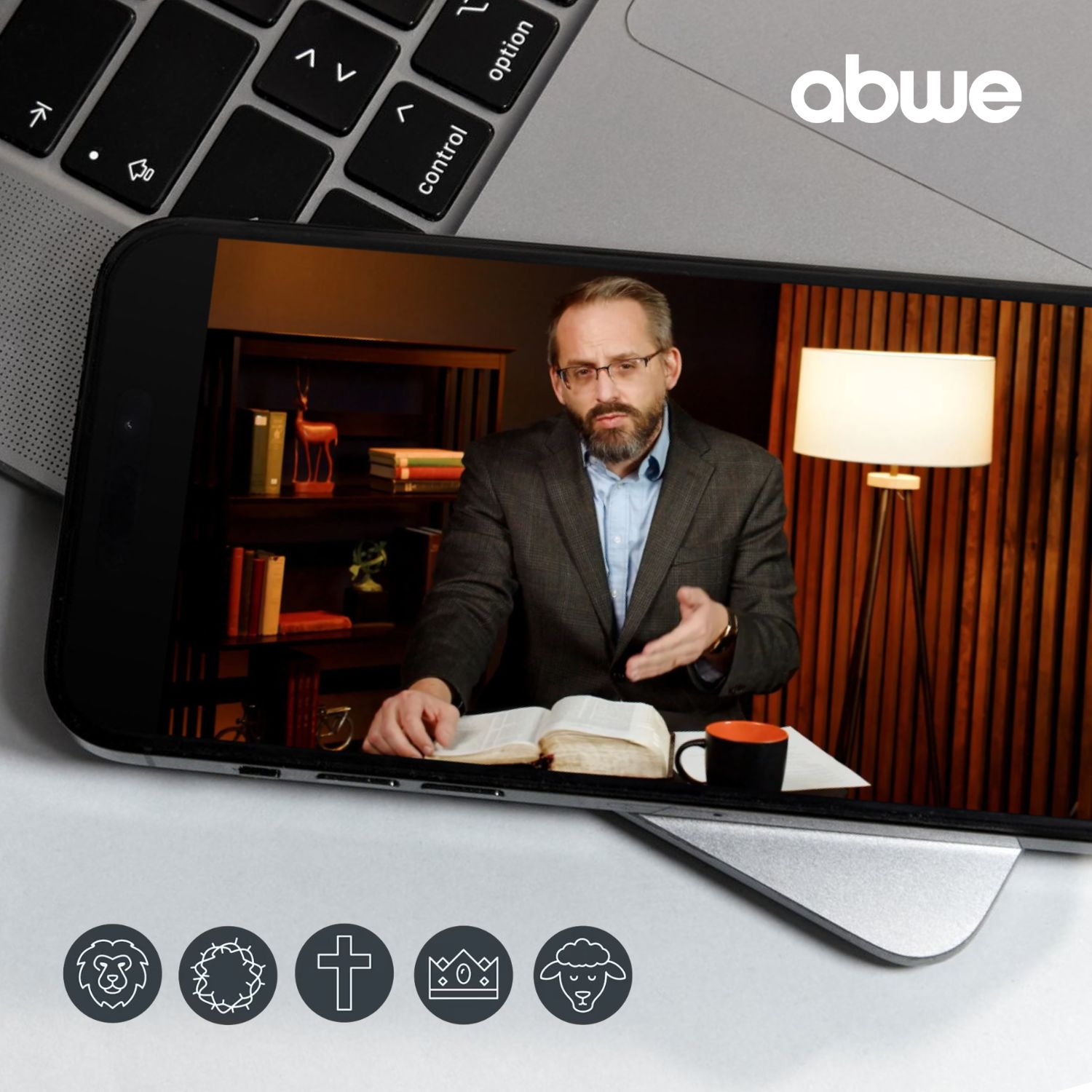So much has happened since that date in March of this year. The world as we knew it came to a crawl, and in each country a new way of living was thrust upon us. Leaders everywhere scrambled to acclimatize and lead amidst unprecedented change that was rapid, uncertain, scary, global in its effect, and seemingly without end.
Over these portentous days, I’ve kept a personal journal to capture not only what was happening in my own ministry efforts but also what I observed in other leaders as I sought to grow in leadership within a missions organization impacting South Asia. These lessons have also been highly influenced by the fact that I lead a team of medical professionals at a mission hospital in a developing country. This means that while many parts of the world were sorting out how to lock things down, we were furiously running head-on into the coronavirus storm. While I’ve learned multiple coronavirus leadership lessons, these are five of them.
Leadership Lesson #1: The Importance of Presence
When the pandemic began, our team was confronted with difficult decisions related to who would evacuate and who should stay. Without much time to prepare, we needed to determine whether a position was “essential” or “nonessential,” and we needed to communicate that without making those workers feel devalued.
All of our workers are dedicated people serving in a developing, densely-populated country where the needs are great. The crisis posed a significant risk, and we all felt it. Yet for our teammates, especially our medical staff, there was a collective sense that this is why we came here. While everyone knew they were needed, we knew that not everyone on our team was equally “essential.” Others were considered high risk, medically or otherwise.
I also had to consider for my wife and myself: should we stay and lead, or should we evacuate? In my role as regional director, we routinely come and go from the various countries whose field teams I oversee from afar. In God’s providence, we had just arrived in-country in February, mere weeks before the pandemic hit. And after much prayer and heart-to-heart conversation, we sensed that God was not leading us to evacuate but to stay. Why?
The world has gone virtual in many ways, mostly by default. Although I am grateful for such technology, it’s not my preferred way to lead others. Our team was in crisis, and when I tried to envision leading them virtually, I just couldn’t. I knew, despite the risk, we could better serve our teammates from inside the country with boots on the ground. The importance of our presence outweighed the wisdom of leaving. And no matter what happens in the next 100 days, we still believe it was the right decision.
I have been in multiple tear-filled, gut-wrenching, face-to-face conversations in these recent days. I’ve been accessible. And for most, I’ve been nearby (though some of our teammates serve in another part of the country). I’ve been with our team through days that none of us will ever forget, and I did my best to contribute.
Physical presence, while not always possible, is meaningful. Only in face-to-face ministry can you truly hear what people are saying and see what they are not saying. While I haven’t been in our medical team’s Acute Respiratory Care Unit (the ARC) personally caring for COVID-19 patients, I’ve been present for our team when patients have died, ready to listen. I’ve had the privilege of bringing hope from God’s word to support and sustain them. Presence makes a difference.
Leadership Lesson #2: Remain True to the Mission
When a pandemic strikes, one feels as though everything is spinning out of control—and in this case, it is. In the early days, our screens were flooded with doom and gloom scenarios and colossal projections numbering in the thousands, if not millions. We were headed toward pandemonium. We were sketching out a new course when our procedure manuals were falling short. These 100 days required us to process information quickly and react immediately, and the challenge was immense.
In such moment, it is critical for a leader keeps first things first. Several times throughout these 100 days I have stopped to ask our team, Why are we here? What’s most important? Will this decision lead us where we want to go?—reminding our team not to lose sight of the overall mission. The coronavirus wasn’t our first catastrophe in South Asia. Consistently emphasizing our Great Commission priorities brought context, perspective, and purpose. Remaining true to that mission keeps one focused during uncertainty.
Leadership Lesson #3: You Cannot Not Communicate
When a crisis hits, one cannot overestimate the importance of consistent and authentic communication. Unfortunately, in the busyness of leading in crisis mode, leaders have a tendency to communicate less, not more. The days are long, many things are coming at you quickly, and it seems like there’s no time to stop and write.
So many times during these 100 days, I’ve led in a “hurry up and wait” environment, feverishly grasping for new information as it trickled in. I was leading people somewhere I’d never been. Yet in these situations, leaders must remember that others are looking to them for security and direction. What are we to do?
For starters, stop pretending. Admit when you don’t have all the answers and explain what you are doing to work on it. Convey your continued trust in God’s wisdom and protection, and don’t fall prey to the fear of over-communicating. Instead, err on the other side—communicate often. Be factual, genuine, and vulnerable. People can easily sniff out fakeness anyway. It’s possible to acknowledge reality while also instilling hope. Trust and unity are built through gracious, truthful, and frequent communication.
Leadership Lesson #4: Embrace “Business Not as Usual”
The difficulty of effective decision making is magnified during crisis. This year, I have worked some of the longest days ever. I recall the day I declared to myself and others that things were now “business not as usual”. We quickly formed a crisis leadership team (CLT) to advise us, providing insight to me and others that enabled our field team to make good decisions.
This proved particularly helpful, as I was working with an established organization with lots of protocols, committees, and formal decision-making processes already in place. The business-as-usual decision-making format was not conducive to the fast-paced need. Without ignoring the systems already in place, we saw that we needed a smaller group of equipped, trustworthy leaders who could be entrusted with making choices on behalf of our whole team.
Changing the way you operate within organizational hierarchies and preconceived plans during times of uncertainty requires a leader to exercise extraordinary flexibility. Embracing “business not as usual” allowed our team not only to survive but to advance.
Leadership Lesson #5: Collaboration Counts
My experience has been that collaboration is often misunderstood and undervalued in the broader leadership arena. Strong leaders are often seen as pioneers—people who know it all and have it all together. Leaders themselves are easily tempted to adopt this modus operandi. But the coronavirus revealed to me a greater need for collaboration. I admit that in the past, it seemed easier and faster to lead by myself, but in this environment, getting help from the right people is critical.
My survival in leadership through COVID-19 has been attributable to two significant factors. First, I engaged my mentors (I am so thankful for these men), who allowed me to ask tough questions. Second, I unashamedly drew upon the expertise and experience of my peers and other leaders in our organization. The coronavirus hit first in other parts of the world before impacting least-developed countries like those in our region. Many of my colleagues were ahead of me in confronting the virus, making hard decisions, and communicating them within their regions. And although not all of them were leading teams of frontline healthcare workers, there was much wisdom to be gained from their experience.
I had neither the time nor desire to reinvent the wheel. We shared emails, exchanged documents, and scheduled regular virtual meetings to support and encourage one another. I found that collaboration was not only valuable but crucial. “Without counsel, plans fail, but with many advisors, they succeed” (Proverbs 15:22).
What are the next 100 days of the coronavirus going to bring? We don’t know. However, I have learned several valuable leadership lessons as I’ve trusted God to guide me through these days.





